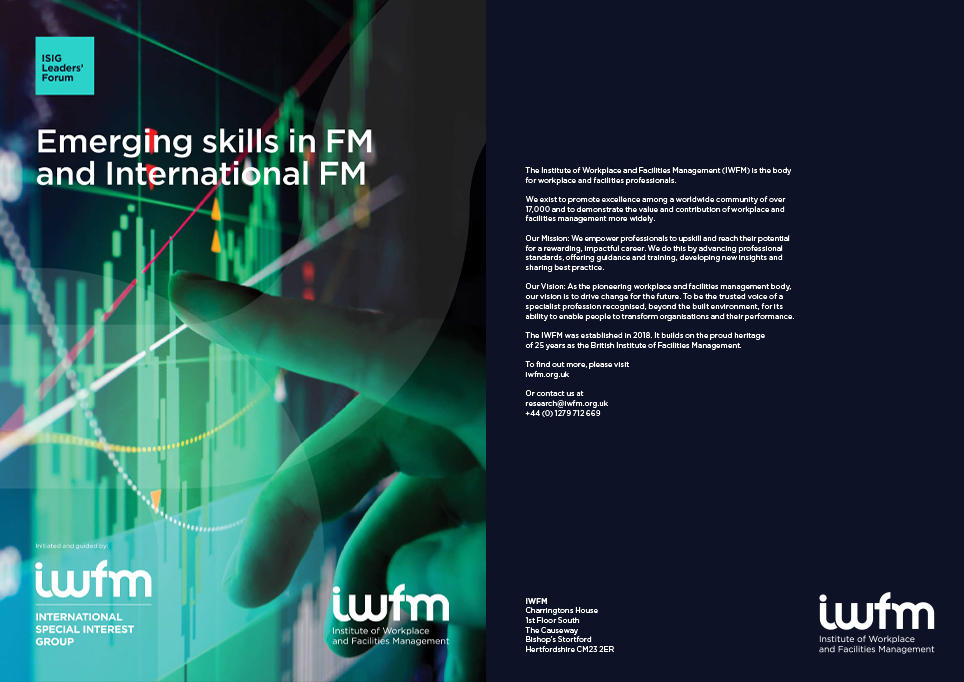A profession on the cusp of change: ISIG investigates
News
18 May 2020

People, workplace, technology and climate are interrelated, so the skills needed for tomorrow’s FM are evolutionary rather than revolutionary.
As fundamental changes in automation and AI pose questions, not only about how facilities professionals work but how the workplace - however defined - can be used as a more flexible tool to enhance organisational performance, it is incumbent on us all to develop our skills to perform well; learning and development institutions need to ensure that their programmes stay relevant; and leaders should more widely adopt the IWFM Professional Standards, ‘our industry’s best kept secret’.
This was the conclusion from a wide-ranging debate hosted by the International Special Interest Group (ISIG) when it brought together more than twenty senior thought leaders in the workplace and facilities management industry with IWFM’s Insight and Professional Development leads to investigate how the profession is demanding new skills, facing a demographic shift, and what it all means for those starting out in their careers.
The report Emerging skills in FM and international FM captures the essence of the leaders’ discussion across four themes:
On the first, new thinking for academic study, one participant said: ‘Making things work properly and making people feel good are some of the toughest problems to crack in society. You need technical knowledge blended with social insight. For example, there’s no such thing as a great piece of digital technology unless it’s also got the user experience at its heart. FM is in the business of curating good experiences. We’ve got to do this in a way that really creates convivial places and in a way that doesn’t cost the earth.’
The second theme, the four forces of people, workplace, technology and climate where – like much of the paper – the talk was about data, its analysis and use, and how it can be harnessed to understand the context of FM. ‘As a people-led profession, the softer skills such as strong leadership, understanding customers and delivering customer service are of paramount importance. I find it hard to believe that these could be automated. The ability to change and adapt very quickly, taking decisions based on data, is where we should aspire to be. Data is the food for automation and AI. This is going to be the biggest area of focus, I think, for our industry, complementing what we do as leaders in the FM space.’
On the third theme of generational stereotyping, one participant said: ‘Empowering people in the future is rooted in education. The single biggest concern for FM should be how we make our industry appealing for young people.’ Another participant noted: ‘Many of our students have already finished or started another degree, but they look at facilities management because they see something broad and interesting in the subject matter.’
The final theme, technology and skills, was an echo of thread at the heart of the debate, including the data and the implications of that information – and crucially how to interpret and use it for the future skills of those in the profession.
You can also explore the IWFM Professional Standards here.
